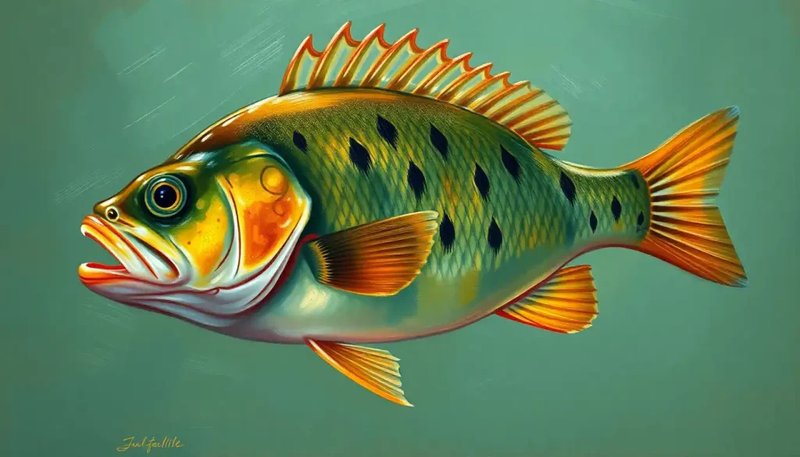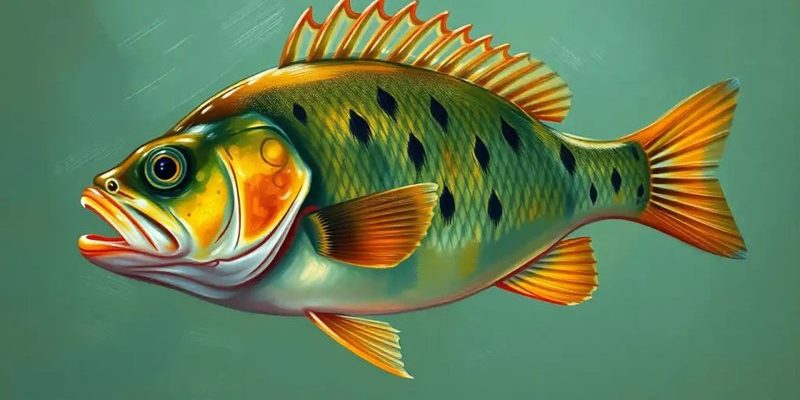
Imagine your favorite “smart” animal. It probably problem-solves, communicates, and adapts to its environment. Just like those animals, fishers have their own unique set of skills that help them thrive in their aquatic habitats. As we explore their intelligence and behaviors, we’ll uncover the secrets of their cognitive powers. So grab a cup of coffee, and let’s dive into the intriguing world of fishers and their brains!
Understanding the Fisher: An Overview
Fishers, known scientifically as *Pekania pennanti*, belong to the family Mustelidae, which includes weasels and otters. Often spotted in North American forests, these creatures are not actually fish but are instead skilled carnivorous mammals. They have a unique body structure that allows them to navigate both land and water effectively. Their long, slender frame and sharp claws help them climb trees and hunt down prey, making them experts in their environment.
You might be wondering why we’re focusing on fishers in a conversation about intelligence. Well, the fisher’s ability to adapt to different situations is a key element of its cognitive skills. When faced with challenges, fishers demonstrate remarkable problem-solving abilities and can even use tools to aid in hunting. This adaptability plays a central role in how we categorize animals based on their intelligence.
Additionally, fishers are known for their social behaviors. They often communicate with each other through a combination of vocal sounds and body language, which could indicate higher cognitive functioning. Observing these interactions gives us insight into their social structures and overall intelligence.
Cognitive Abilities: Problem Solving and Adaptability
One of the standout traits of fishers is their problem-solving skills. These hunters are known to come up with creative solutions when seeking prey. For instance, fishers have been observed using their agility and sharp wit to catch squirrels hiding in trees. Instead of chasing them up the trunks—which would be futile—fishers can quickly adapt their strategy, waiting patiently for an opportunity to pounce.
Here’s the thing: this ability to strategize demonstrates that fishers don’t just act on instinct; they can think ahead and plan their next move. Studies have shown that animals exhibiting this kind of behavior often have a better chance of survival in the wild. It’s fascinating to see how fishers have honed these skills over time to thrive in diverse environments.
Moreover, fishers also display adaptability in their diet. They are opportunistic eaters, meaning they’ll consume whatever is available in their habitat. This flexibility not only showcases their cognitive abilities but also highlights their survival skills. Whether it’s a small mammal, bird, or even fruit, fishers are quick to adjust their diets according to the seasons and food availability in their surroundings.
Social Behavior and Communication
Fishers are, surprisingly, quite social animals. They often communicate with each other using a series of vocalizations, body language, and even scent marking. For instance, when a fisher feels threatened, it may emit a series of high-pitched sounds to alert others nearby. This vocal signaling is a clear indication of their ability to communicate effectively and share information, showcasing a level of cognitive sophistication.
Their body language also plays a significant role in their social interactions. Have you ever seen a dog wag its tail? Fishers demonstrate similar behaviors, using their posture and movements to convey emotions or intentions to other fishers. This form of non-verbal communication not only strengthens social bonds within a group but is also essential for survival.
Interestingly, research has indicated that social animals often have more developed brains, leading to a higher degree of intelligence. As fishers navigate their social world, it’s clear that their ability to communicate and build relationships contributes to their overall cognitive strengths.
Tool Use: A Sign of Intelligence?
When we think of tool use, we often envision primates or clever birds. However, fishers also demonstrate an ability to use tools in their daily lives. Take, for example, the way they hunt. Fishers have been observed using fallen branches or stones to access hidden prey, like nestling birds. This ability to manipulate their environment for a specific purpose is a fascinating aspect of their intelligence.
You might be thinking, “Isn’t that just instinct?” Well, there’s a fine line between instinct and intelligence. The fact that fishers can show a preference for specific tools depending on the situation indicates a level of cognitive processing that goes beyond mere instinct. They assess their surroundings and choose the best method for success.
This tool-using behavior emphasizes the connection between an animal’s ability to problem-solve and its overall intelligence. In a world where survival is often based on quick thinking and adaptability, having the ability to utilize tools sets fishers apart as one of nature’s clever mammals.
Learning and Memory: How Fishers Develop Skills
Learning and memory play crucial roles in the cognitive abilities of fishers. Like many animals, fishers learn from their experiences, whether through trial and error or by observing others. Young fishers, for instance, often watch their mothers hunt and play, mimicking behaviors that will become essential for their survival later in life.
This observational learning is an important aspect of their development. It allows young fishers to build a repertoire of skills by watching and emulating older individuals. For instance, a young fisher might learn to climb trees more efficiently or hunt more effectively by simply observing how their mother does it.
Moreover, memory is critical for survival. Fishers often have to recall the locations of food sources, shelters, and even potential threats. A strong memory enables them to navigate their environment better, ensuring they can find food and avoid dangers. This intricate combination of learning and memory illustrates how fishers maximize their cognitive abilities.
Comparing Fishers with Other Mammals
So how do fishers stack up against other mammals in terms of intelligence? When comparing fishers to animals like dogs or primates, we see some similarities in problem-solving skills, social behaviors, and tool use. However, the unique adaptations of fishers, specifically their hunting techniques and ability to thrive in various ecosystems, set them apart.
For instance, while dogs have been bred for companionship and specific tasks—like herding or hunting—fishers have honed their skills in a wild setting. This means their intelligence is focused more on survival rather than performing tasks for humans, making their cognitive abilities quite fascinating in the context of their environment.
Moreover, fishers’ adaptability to different habitats, from forests to mountainous regions, shows how they use their cognitive skills to survive. While many mammals might struggle with significant changes in their environment, fishers can adjust their strategies to continue thriving.
To sum it all up, fishers might not be the first creatures that come to mind when we think of intelligence, but they certainly deserve more recognition. Their cognitive abilities—from problem-solving and social behaviors to tool use and memory—paint a picture of adaptable, intelligent animals. As we learn more about these fascinating creatures, we gain a deeper appreciation for the complexities of animal intelligence.
Next time you hear about a fisher or spot one in the wild, take a moment to consider the remarkable cognitive skills that help these animals survive. Hidden beneath that furry exterior is a creature with a rich mental landscape, capable of adapting, learning, and thriving in its environment. So, let’s celebrate the fisher for its intelligence and the essential role it plays in our ecosystems!

